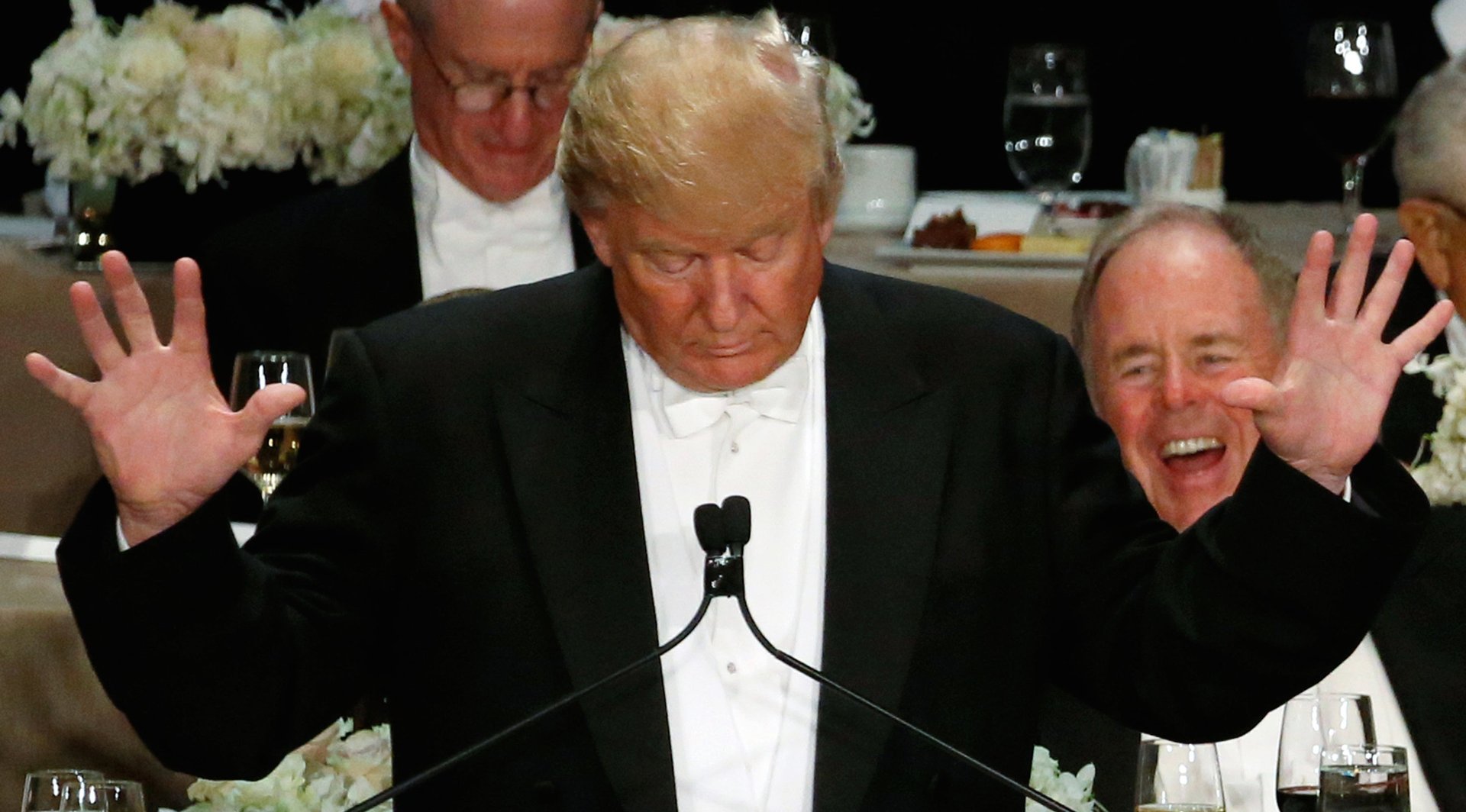In two weeks, Donald Trump has undone a decade of progress for sexual assault survivors
On Oct. 7, the Washington Post released a now infamous tape featuring presidential candidate Donald Trump claiming he can “grab women by the pussy” because of his celebrity status. In the weeks following the tape’s release, more than a dozen women have come forward claiming he sexually assaulted or harassed them. And during the third and final presidential debate, in front of millions of viewers, Trump denied every one of those allegations, blaming them on the women’s desire for fame and the Democrats’ desire to destroy his campaign.


On Oct. 7, the Washington Post released a now infamous tape featuring presidential candidate Donald Trump claiming he can “grab women by the pussy” because of his celebrity status. In the weeks following the tape’s release, more than a dozen women have come forward claiming he sexually assaulted or harassed them. And during the third and final presidential debate, in front of millions of viewers, Trump denied every one of those allegations, blaming them on the women’s desire for fame and the Democrats’ desire to destroy his campaign.
In just two short weeks, the Trump campaign has potentially undone years of slow progress. In the most public arena possible, sexual assault is being treated like a political bargaining chip, and tired stereotypes about gold-digging, lying women have once again become common parlance. Although Americans around the country have reacted in disgust and horror to Trump’s comments, his campaign’s response—as well as the reaction of some media outlets—may convince some women to keep quiet about their own assaults. For sexual assault survivors and advocates, this is both an insult and a devastating setback in the fight against predators.
Trump isn’t just playing defense against these claims, however, he went on the attack. At the final presidential debate, Trump called the accusations “lies” and “fiction” that “have been debunked.” In response to a New York Times article in which two women claim Trump made unwanted sexual advances, his campaign staff stated “this entire article is fiction… [it’s] a completely false, coordinated character assassination.”
After Summer Zervos claimed Trump had been sexually aggressive with her during a meeting at the Beverly Hills Hotel, he responded in a campaign statement, “The media is now creating a theater of absurdity that threatens to tear our democratic process apart.” At a rally in Charlotte, North Carolina on Oct. 14, Trump claimed that in fact he was the victim in “one of the great political smear campaigns in the history of our country.” And when asked about the allegations during the debate, Trump responded “she [Clinton] got these people to step forward. If it wasn’t that, they get their 10 minutes of fame.”
These statements don’t just delegitimize the women who have come forward with stories of assault and harassment from Trump—they delegitimize every sexual assault survivor’s story.
The US Department of Justice (DOJ) and the Rape, Abuse, and Incest National Network (RAINN) emphasize the importance of believing survivors when they come forward. It’s extremely traumatic for survivors to tell their stories in the best of circumstances, and one of the reasons many don’t is because they fear they won’t be believed.
The chance that a survivor isn’t telling the truth is statistically slim. Sexual assault is one of the most underreported crimes, and two out of every three sexual assaults go unreported, according to RAINN. The prevalence of false accusations in reported cases is only between 2% and 10%, according to the National Sexual Violence Resource Center. A study of 2,059 cases of sexual assault found a 7.1% rate of false reporting, according to NSVRC.
While journalists are required to report Trump’s denials, simply presenting both sides is not necessarily enough. Without context, media outlets run the risk of reinforcing the idea that such stories should be questioned in the first place.
Trump’s campaign has also cited the timing of the women’s reports as evidence that their stories must be politically motivated falsehoods. In an interview with Anderson Cooper on CNN, Kristin Anderson, one of the women accusing Trump of sexual harassment mentioned that some people have questioned why she didn’t come forward earlier. As another example, during a press conference with Summer Zervos’s lawyer Gloria Allred and Zervos’s friend Ann Russo on Oct. 16, a nameless reporter asked, “Why are people saying that she [Summer] never told anyone?”
The question of timing can invalidate a survivor’s story by implying doubt. The DOJ recommends avoiding the “why” question because it can cause survivors to shut down—when and how a survivor decides to come forward is up to them, and waiting days, months, or even years is not uncommon. Because sexual assault and harassment are so traumatic, everyone processes their assault differently, and, for some, it can take more time to come forward. Some only tell a handful of people. Others tell no one at all.
Balance in journalism is important, but some issues also require nuance and context. When a presidential candidate openly says he gropes and grabs women’s genitals on tape, and then women come forward claiming he did in fact do those things to them, the media needs to think critically before repeating his smear tactics. This isn’t about objectivity—it’s about evaluating all of the facts and reporting on them accordingly.
The media has accommodated Trump’s lies for a year, and this is one issue where his version of events cannot be allowed to dominate the conversation. Not all facts are created equal. The worst thing we can do is to stay silent while Trump’s victim-blaming rhetoric convinces other sexual assault survivors to remain quiet.